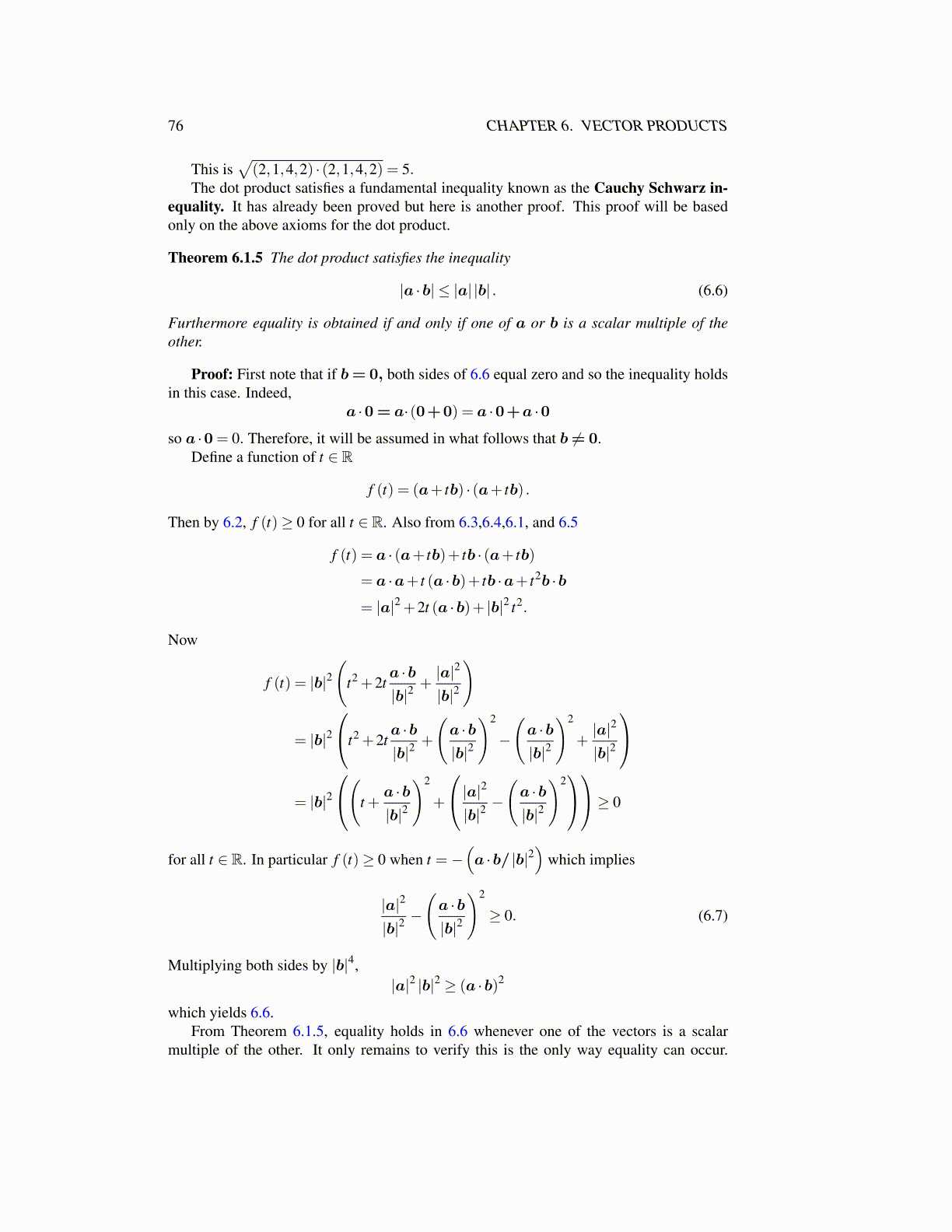
76 CHAPTER 6. VECTOR PRODUCTS
This is√(2,1,4,2) · (2,1,4,2) = 5.
The dot product satisfies a fundamental inequality known as the Cauchy Schwarz in-equality. It has already been proved but here is another proof. This proof will be basedonly on the above axioms for the dot product.
Theorem 6.1.5 The dot product satisfies the inequality
|a ·b| ≤ |a| |b| . (6.6)
Furthermore equality is obtained if and only if one of a or b is a scalar multiple of theother.
Proof: First note that if b= 0, both sides of 6.6 equal zero and so the inequality holdsin this case. Indeed,
a ·0 = a·(0+0) = a ·0+a ·0
so a ·0= 0. Therefore, it will be assumed in what follows that b ̸= 0.Define a function of t ∈ R
f (t) = (a+ tb) · (a+ tb) .
Then by 6.2, f (t)≥ 0 for all t ∈ R. Also from 6.3,6.4,6.1, and 6.5
f (t) = a · (a+ tb)+ tb · (a+ tb)
= a ·a+ t (a ·b)+ tb ·a+ t2b ·b
= |a|2 +2t (a ·b)+ |b|2 t2.
Now
f (t) = |b|2(
t2 +2ta ·b|b|2
+|a|2
|b|2
)
= |b|2t2 +2t
a ·b|b|2
+
(a ·b|b|2
)2
−
(a ·b|b|2
)2
+|a|2
|b|2
= |b|2
(t +a ·b|b|2
)2
+
|a|2|b|2−
(a ·b|b|2
)2≥ 0
for all t ∈ R. In particular f (t)≥ 0 when t = −(a ·b/ |b|2
)which implies
|a|2
|b|2−
(a ·b|b|2
)2
≥ 0. (6.7)
Multiplying both sides by |b|4,|a|2 |b|2 ≥ (a ·b)2
which yields 6.6.From Theorem 6.1.5, equality holds in 6.6 whenever one of the vectors is a scalar
multiple of the other. It only remains to verify this is the only way equality can occur.